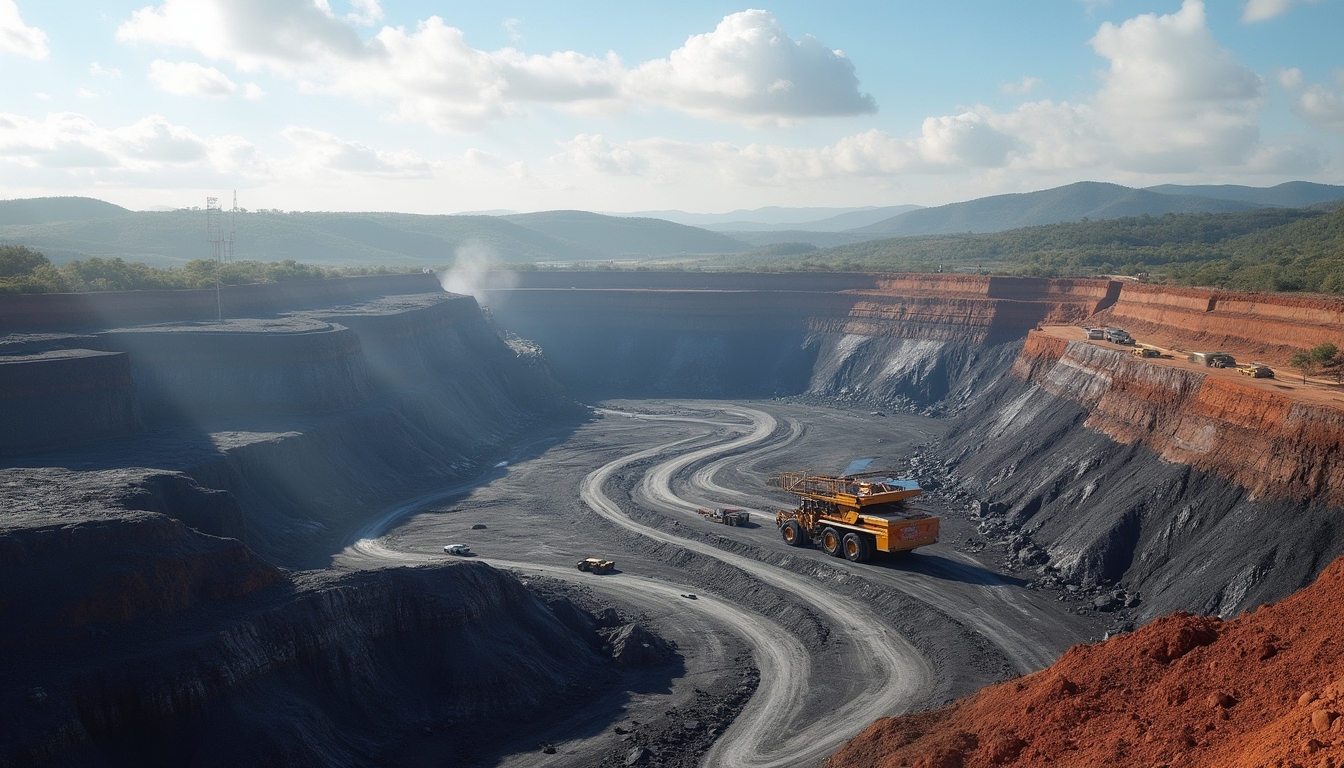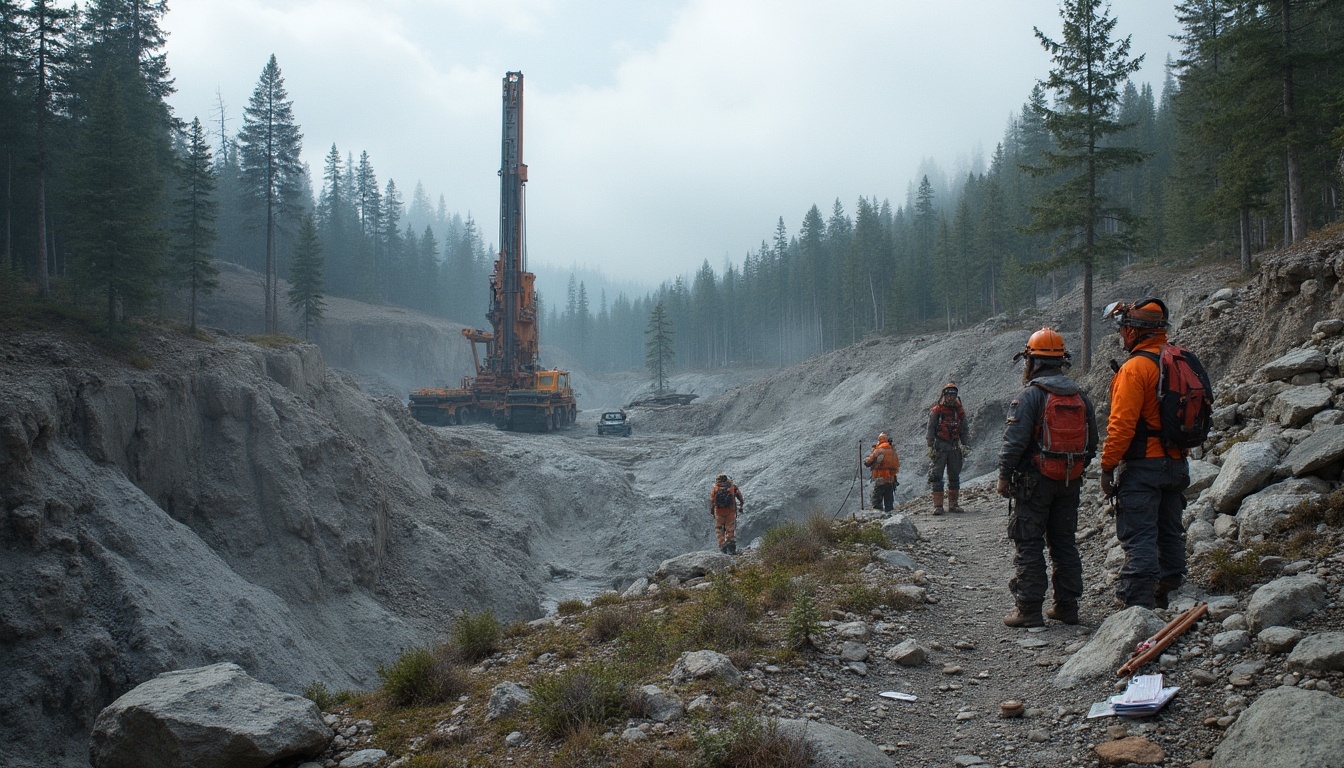The Future Minerals Forum in Riyadh has emerged as a pivotal platform for global mining dialogue, particularly focusing on the untapped potential of emerging markets across Africa, South America, Central Asia, and the Middle East. With representatives from 90 different mining ministries worldwide, the event underscores Saudi Arabia's strategic vision to position itself as a central hub for international mining partnerships and investments.
Saudi Arabia's Strategic Vision in Global Mining
Saudi Arabia is increasingly leveraging its extensive experience in oil and gas infrastructure to make significant strides in the mining sector. By hosting the Future Minerals Forum, the kingdom is not only showcasing its commitment to diversifying its economic portfolio but also establishing itself as a key facilitator of mining investments in emerging markets. The forum serves as a testament to Saudi Arabia's role in global mining, highlighting its ambition to create innovative pathways for international mining collaborations.
Mark Bristow, President and CEO of Barrick Gold, highlighted the forum's core objective: creating investability in the Deep South. By bringing together key stakeholders, the event aims to address critical challenges and opportunities in developing mining ecosystems across emerging economies.
Barrick Gold's Expansion in Saudi Arabia
Barrick Gold's partnership with Saudi Arabian entities, particularly through the Jabal Sayid copper mine, demonstrates a promising strategic expansion. The mine, despite its relatively modest size, is one of the world's richest copper mines with approximately 9–10 years of reserves remaining. The company has already submitted permit applications to extend the mine's operational life and continues exploring surrounding areas.
This collaboration reflects a broader commitment to copper and gold exploration in the Arabian Shield region. By tapping into Saudi Arabia's mining potential, Barrick Gold aims to expand its global footprint and capitalise on new opportunities.
Challenges Facing Barrick Gold in Mali
The current situation in Mali represents a complex geopolitical challenge for Barrick Gold. Following government intervention and disputes over mining rent, the company has temporarily suspended operations at the Loulo-Gounkoto complex. This development is significant given Mali's historical importance to Barrick's business.
Mark Bristow emphasised the importance of dialogue, drawing parallels with his experiences in South Africa during the post-apartheid era. He believes that transparent communication and mutual understanding are crucial to resolving current tensions and finding a sustainable path forward. For more detailed insights into these challenges, refer to rising tensions in Mali.
Geopolitical Risks Impacting Mining Investments in Africa
Geopolitical risks in African mining sectors are increasingly characterised by countries seeking greater control and financial benefits from mineral resources. The situation in Mali exemplifies a broader trend of governments demanding more significant shares of mining revenues, which can create uncertainty for international mining companies.
These developments underscore the delicate balance between national economic interests and creating an attractive investment environment for international mining firms. Successful navigation requires nuanced diplomatic and economic strategies, including robust risk management and adaptive operational models.
Future Prospects for Barrick Gold Beyond 2025
Barrick Gold's strategic vision focuses on integrating new discoveries, expanding copper and gold reserves, and developing critical projects like Reko Diq. The company's long-term approach emphasises technological innovation, strategic partnerships, and adaptability in a rapidly changing global mining landscape.
The integration of Randgold has positioned Barrick Gold to leverage synergies and explore new growth opportunities across multiple geographical regions. For more on Barrick's global strategy, see how the company is positioning itself to overcome challenges and capitalise on emerging opportunities.
Emerging Mining Industry Trends in 2023
The mining industry in 2023 is characterised by significant global transition trends, including deglobalisation, geopolitical shifts, and an increased focus on technological innovation. Companies are:
- Prioritising operational efficiency and sustainable practices
- Implementing advanced data analytics for better decision-making
- Adopting precision drilling techniques to enhance productivity
- Developing comprehensive risk management strategies to navigate complex environments
Additionally, there's a growing emphasis on ethical mining practices and environmental stewardship, aligning with global sustainability goals.
The Impact of Mining on the Global South
Mining remains a critical developmental tool for emerging economies, offering potential pathways for poverty reduction and economic growth. However, equitable access to developmental benefits remains a significant challenge. Successful models demonstrate that when mining investments are structured transparently and with genuine community engagement, they can drive substantial socioeconomic progress.
China's Role in Global Mineral Supply Chains
As the world's leading producer of rare earth elements, China plays a pivotal role in global mineral supply chains. Recent export controls on rare earth minerals have significant strategic implications for industries worldwide, especially in the technology and defence sectors.
This move highlights the increasing geopolitical complexities surrounding critical minerals, emphasising the need for diversified supply chains and strategic partnerships to mitigate risks.
Exploration Incentive Schemes Boosting Mineral Exploration
Governments are implementing exploration incentive schemes to boost mineral exploration, particularly in regions like Western Australia. These initiatives aim to:
- Attract investment and stimulate economic growth
- Support junior mining companies in their exploration efforts
- Encourage innovation in exploration techniques
- Ensure a sustainable supply of critical minerals
Such schemes are crucial in fostering a dynamic mining sector that can meet the demands of a rapidly evolving global market.
Frequently Asked Questions
Q: Why did Barrick Gold suspend operations in Mali?
A: The suspension resulted from disputes over mining rent and government intervention, highlighting the complex geopolitical landscape in emerging mining markets.
Q: What are the implications of new mining codes for global miners in Africa?
A: New mining codes are increasing government stakes and demanding more transparent, equitable benefit-sharing mechanisms, which require adaptive strategies from international mining companies.
Q: How might global political shifts impact future mining investments?
A: Political shifts are creating more complex investment environments, emphasising the need for robust risk management, strategic partnerships, and flexible operational models.
Q: What role does Saudi Arabia play in shaping future mineral investments?
A: Saudi Arabia is emerging as a key facilitator, leveraging its infrastructure expertise to create innovative investment platforms and collaborative opportunities in the global mining sector.
Ready to Invest in the Next Big Mining Discovery?
Unlock potential opportunities with Discovery Alert’s real-time notifications and expert insights into emerging markets like those discussed at the Future Minerals Forum. Whether you're exploring copper, gold, or other resources, stay ahead with AI-driven analysis and a free 30-day trial by visiting Discovery Alert.







